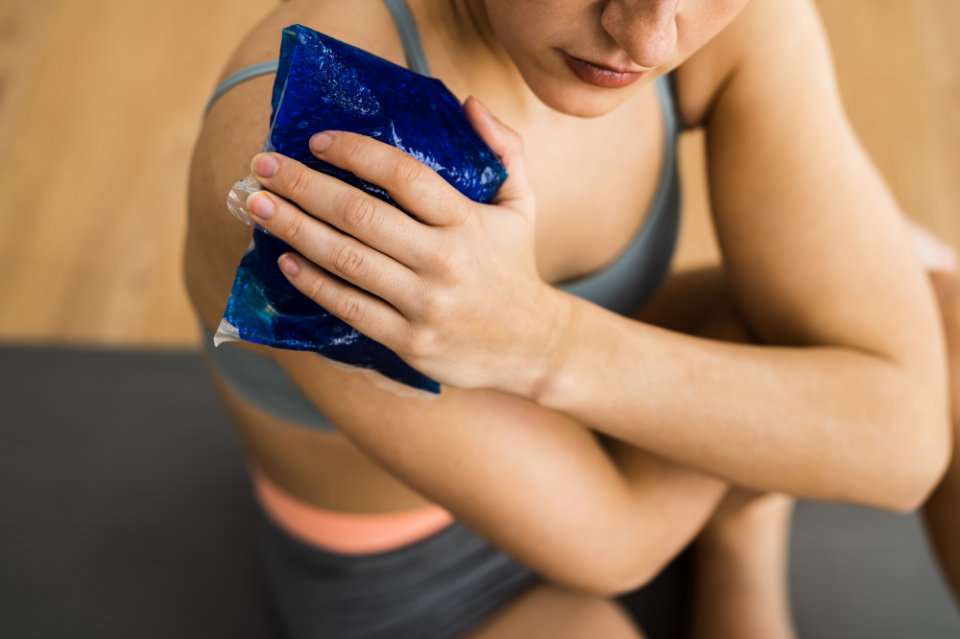Whether you run recreationally or professionally, chances are you will get injured from time to time. It may be something as harmless as a sprained ankle or muscle soreness from not taking the time to warm up or cool down properly, or it may be a more serious ligament injury.
In either case, you will want to recover as fast as possible, not only to get back on the track but to return to a pain-free life.
So, here are six science-backed ways to get well faster.
Sleep More
You don’t need us to tell you that sleep is a vital component of recovery. Without it, your strength and stamina will suffer, and you will certainly need more time to heal.
Adults will need around 7 hours of sleep. When you are injured, try to get at least 8. You can also consider adding afternoon naps into your routine, as they can give you a mood and energy boost, as long as you keep them under 20 minutes.
Eat Better
Alongside sleep, our bodies need protein to repair the damage we have done. This is true when we are at our healthiest and when we are in recovery.

Getting enough protein will ensure there is no muscle breakdown, as your body has all the building blocks it needs to heal.
Add more calcium and vitamins C and D to your diet, too. They will work together to improve bone health and immune system as well as your metabolic health. All that together will definitely speed up your recovery.
Stay hydrated and drink more water than you usually do. It will ensure all the nutrients are absorbed in a more timely manner and that they can get to where they are needed the most.
Stretch More Often
Regular stretching can not only prevent injury but also help you recover faster and feel more at home in your body while you’re unable to run.
It will improve your blood flow, ensuring all the required nutrients are delivered to the injury site and that your body has all the prerequisites for repair.
Make sure you only do light, gentle stretches. Based on the severity of your injury and your doctor’s recommendations, you may want to keep a certain part of your body immobilized and stretch other muscles to get your circulation going.
Try Cold Therapy
Cold therapy can help reduce swelling and pain, which will lead to faster recovery too, as you’ll be feeling stronger mentally and emotionally.

You can apply it locally to the injury, wait until you can’t take the cold anymore, and then let your body naturally warm up. As your blood starts to pump, you will experience relief.
You can also get yourself a cold plunge tub and start practicing cold baths. They will help reduce pain and inflammation, but they also have a positive effect on your mental health and immune system.
Work on Your Mental Health
Recovery is often as much about the mind as it is about the body. If you are feeling tense or facing any other mental challenges, you will need more time to heal.
Since running is a great way to keep mental health in check and combat anxiety, stress, and procrastination, when you can’t run, it’s only to be expected that you will start to feel blue.
Accept that this is perfectly normal, but also make sure to work on getting better mentally. Find time for your hobbies, spend more time with people who leave you feeling positive, and adopt an entirely positive mindset. Rather than a setback, try to view the injury as a chance to do something different.
Don’t Run Too Soon
A lot of runners prolong their recovery times by starting to run too soon. They exacerbate their injury and do themselves much more harm than good.
Instead of hitting the track too soon, give yourself some extra time. How soon is too soon will depend on the severity of the injury, but a good rule of thumb is not to try running until there is no more pain. Don’t try to shake it off or run through it. It won’t help.
You can do other physical activities while you can’t run, provided that they don’t involve extensive use of the injured limb. You can play table tennis or foosball, for example. While certainly not nearly as cardio-intensive, they are still a great way to move a bit and work on your mental health.
Wrapping Up
Recovering from an injury is always a pain in the neck. If you stick to this very basic yet scientifically proven advice, you can expect to be breaking personal bests in the near future. Patience is a virtue, so cut yourself some slack and adopt a positive outlook. It will do you a world of good.





